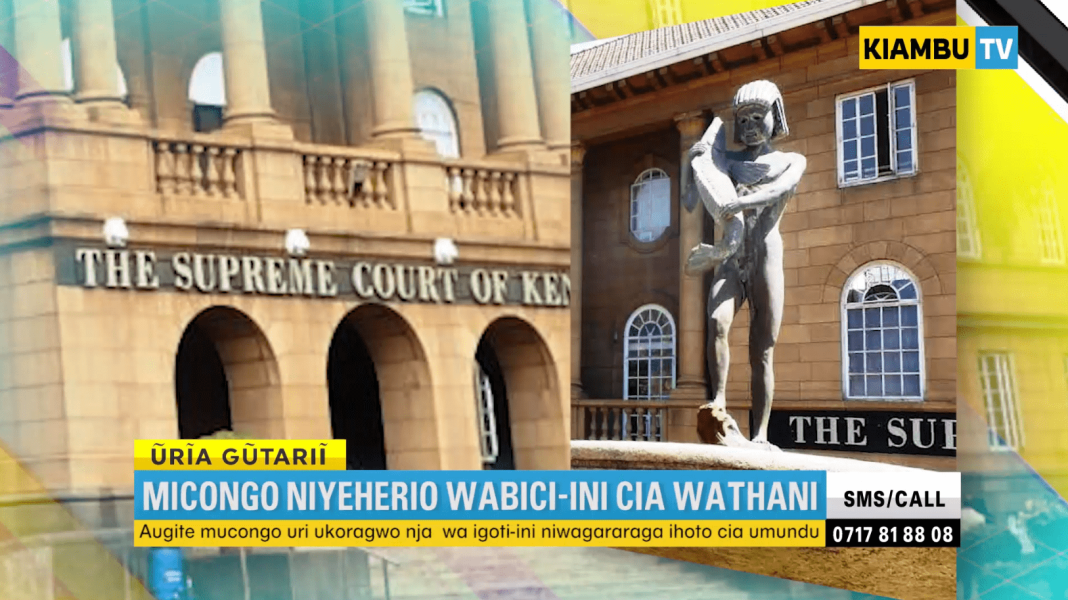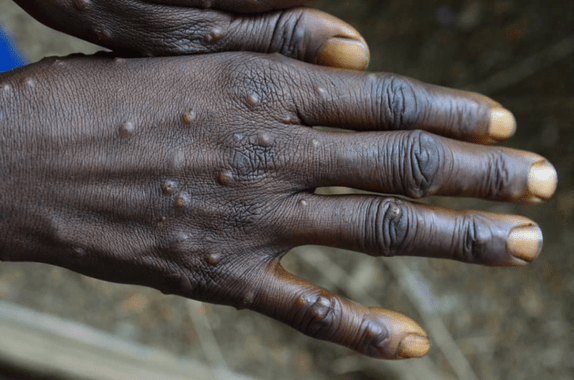A resident of Ndenderu, Kiambaa constituency, has formally petitioned the Judiciary to remove a controversial naked boy statue at the Supreme Court of Kenya. The petitioner, John Mweha Kariuki, argues that the statue is culturally demeaning, offensive, and misaligned with Kenyan values and legal principles.
In his petition to Chief Justice Martha Koome, Kariuki calls for the statue’s immediate removal. The statue, commissioned during the colonial era by Mrs. Gertrude Hamilton in honor of her husband Alexander George Hamilton, has been a fixture at the court for decades.
Kariuki believes the statue fails to reflect the dignity, respect, and justice that are fundamental to Kenyan society. He argues that the naked depiction of a young boy is not only culturally insensitive but also offensive, undermining key values in the Kenyan Constitution, particularly those related to human dignity, social justice, and cultural respect.
The petitioner further emphasizes that as a colonial symbol, the statue is out of place in post-independence Kenya. He contends that keeping such symbols contradicts Kenya’s efforts to decolonize its institutions and establish a judicial system that resonates with Kenyan heritage and identity. Kariuki also notes that the statue’s symbolism, such as the boy holding a slippery fish, could be seen as representing instability in justice—an image that he believes erodes public trust in the judiciary.
Kariuki recommends that the Judiciary initiate a public consultation process to select a more appropriate symbol that embodies Kenya’s legal values and national identity. He also calls for the removal of other colonial-era statues and engravings from government buildings, especially those that do not resonate with Kenyan cultural values.
He also highlights other controversial symbols, such as the engravings at the entrance of the National Assembly, which he claims resemble ritual skeletons and could negatively influence the nation’s affairs. Kariuki argues that these symbols should be replaced with ones that celebrate Kenya’s heritage and identity.
Beyond the cultural and legal concerns, Kariuki’s petition also calls for national prayers within government buildings constructed during the colonial era. He suggests that these prayers could help break any negative influences from colonial symbols and attract divine blessings to the nation, referencing biblical scriptures to support his appeal.
Kariuki’s petition represents a broader call for Kenya to reevaluate the symbols that represent its legal and governmental institutions. As the Judiciary considers this petition, the debate over the appropriateness of colonial-era symbols in modern Kenya is likely to intensify, with significant implications for how the nation defines its identity and values in the post-colonial era.







paypal casino online
References:
http://www.career4.co.kr
gamble online with paypal
References:
https://worlancer.com/
Do I need an app to play Lucky Green on mobile?
How fast are withdrawals at Lucky Green casino?
Lucky Green operates as an offshore operator and Australian players can legally access the site.
There are no guaranteed ways to beat RNG-based pokies, but solid bankroll and play management increases enjoyment and reduces risk.
Operates the platform with a clear focus on Australian players, even implementing geo-blocking for restricted territories while keeping the doors wide open for
Aussie punters. Lucky Green casino does not charge fees for deposits or
withdrawals. The mobile version maintains the same security standards
and game quality as the desktop platform. Lucky Green online casino operates under license number 8048/JAZ
issued by Curacao eGaming, a recognized licensing authority
for online gaming operators.
References:
https://blackcoin.co/roll-xo-online-casino-official-site-with-pokies-and-games/
E-wallets tend to offer the fastest withdrawal times,
often processing within 24 hours, while bank transfers and card withdrawals may take
several business days. It’s important to note that the availability of online gaming options may vary depending on the local regulations and the
specific services offered by each casino location. It is Australia’s second-largest casino, offering a vast array
of gaming options, including poker, blackjack, and roulette,
along with electronic gaming machines.
Make sure the items are well-protected so they don’t get damaged in transit.
To add Facebook Marketplace shipping options to your listing,
click on the little truck icon at the top right of your screen. Next, you’ll
want to create the listings for your Facebook
Marketplace items. Take a moment to look around your home for any items you no longer need or use,
and think about listing them. You might be surprised by the variety of items that
people are willing to buy on Facebook Marketplace.
You’ll need to utilize your own shipping labels or alternative services like
Pirate Ship to handle shipping logistics efficiently.
As of February 24, 2025, you can’t create or purchase prepaid shipping labels directly through Facebook for
new listings. When listing your item, provide clear, high-quality images and an accurate description. This ensures
you can effectively reach a larger audience while maintaining a
secure selling environment. This integration allows you to benefit
from discounted shipping rates, enhancing your profit margins.
References:
https://blackcoin.co/skycrown-online-casino-au-pokies-payid-neosurf-fast-payouts/
Wir kennen die Bedürfnisse und Wünsche der deutschen Casino-Enthusiasten genau und identifizieren jene
Anbieter, die ein sicheres und ungetrübtes Spielvergnügen ohne jegliche Einschränkungen gewährleisten. Daher
hat unsere Redaktion sich intensiv mit den Diskussionen und
Meinungen innerhalb der Automatenspieler-Community auseinandergesetzt und eine sorgfältige
Prüfung aller relevanten Anbieter vorgenommen. Die jüngsten gesetzlichen Änderungen haben es
für Liebhaber von Automatenspielen in Deutschland zunehmend schwieriger gemacht,
ein nahtloses und genussvolles Spielerlebnis zu genießen.
Willst Du in Online Casinos ohne Limit spielen, dann musst Du Anbieter mit deutscher Lizenz
ausschließen. Während deutsche Casinos durch die Regulierung stark eingeschränkt sind, bieten EU-Casinos das komplette Spektrum moderner Online-Glücksspiele.
Diese EU-Casinos als Alternative bieten deutschen Spielern mehr Freiheit beim Spielen, ohne die strengen deutschen Beschränkungen. Alle gelisteten Anbieter besitzen EU-Lizenzen und bieten deutsche Spieler eine Alternative zu den beschränkten deutschen Casinos.
Regulär handelt es sich um den typischen 100-prozentigen Neukundenbonus von bis zu 500 Euro und 200 Freispielen.
Alternativ jedoch auf klassische Tischspiele,
Jackpots oder Live-Casinospiele ausweichen. Anders als die Casinos mit deutscher Lizenz sind die Casinos
aus dem Ausland nicht ausschließlich an die Spielautomaten gebunden. Welche Zahlungsmethoden euch in den Casinos ohne Einsatzlimit zur
Verfügung stehen, variiert von Anbieter zu Anbieter.
Spieler sollen zum Beispiel durch ein monatliches Einzahlungslimit davor bewahrt werden, zu hohe Beträge auf ihr Spielerkonto einzuzahlen. Dort
habt ihr keine Möglichkeit, das gesetzliche Einsatzlimit zu verändern oder aufzuheben.
References:
https://online-spielhallen.de/category/uncategorized/
Thanks for sharing. I read many of your blog posts, cool, your blog is very good. https://www.binance.info/cs/register?ref=S5H7X3LP
Efficient, effective, and always eager to assist.
buy generic lisinopril without rx
Their patient care is unparalleled.